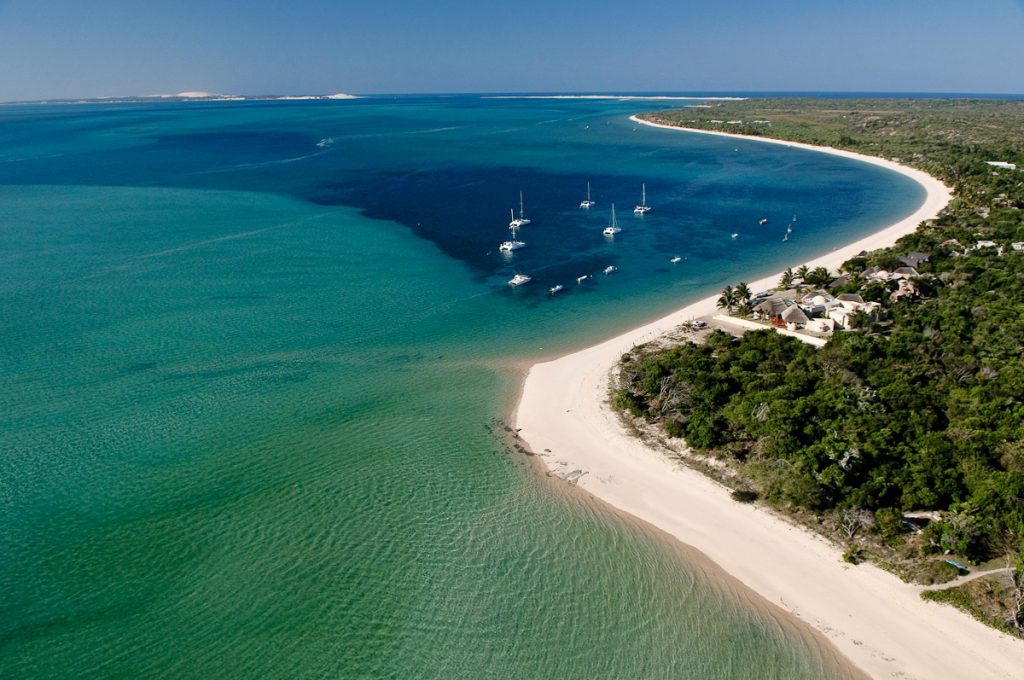If you visit beaches or swimming pools in Mozambique, you will notice lifeguards on duty to ensure everyone’s safety. The lifeguard’s essential job is to help prevent accidents and respond quickly in emergencies, which requires specialized training. Lifeguard training in Mozambique serves this purpose—preparing individuals to protect swimmers at beaches, resorts, and swimming pools across the country.
Mozambique, located on the southeastern coast of Africa, is blessed with over 2,400 kilometers of stunning Indian Ocean coastline, making it one of the longest in Africa. With world-famous beaches like Tofo, Ponta do Ouro, and Vilanculos, swimming, diving, and water sports are extremely popular. This abundance of aquatic destinations creates a strong demand for professional lifeguards, especially during peak tourist seasons.
Lifeguards in Mozambique work at beaches, hotels, resorts, and swimming pools to ensure water safety for locals and tourists. With tourism expanding rapidly along the coast, there are increasing opportunities for well-trained lifeguards to build fulfilling careers.
Lifeguard training in Mozambique is the first step toward a rewarding profession in aquatic safety. Once certified by an internationally respected organization such as the American Lifeguard Association (ALA), candidates become eligible for employment at beaches, pools, and aquatic centers across Mozambique and abroad.
ALA training centers in Mozambique provide multiple lifeguard courses and certifications throughout the year. While demand peaks in summer and holiday months, indoor and resort pools maintain employment opportunities year-round.
With more than 30 years of experience, the American Lifeguard Association has trained lifeguards globally, including in Africa. ALA certification demonstrates professionalism, readiness, and a commitment to safety recognized by employers worldwide.
The American Lifeguard Association (ALA) is supported by Global Lifeguards and the Swimming Pool and Spa Foundation, both nonprofit 501(c)(3) organizations dedicated to preventing drownings and improving water safety.
ALA’s mission is to make swimming pools, beaches, and waterways safer by equipping lifeguards with professional skills. The organization collaborates with employers across North America, Africa, and other regions to promote safety standards and provide consistent, high-quality training.
The ALA has been acknowledged by international health and safety bodies, including:
They also incorporate insights from international safety reports and follow the Model Aquatic Health Code (MAHC) for continuous training and evaluation.
To enroll in the American Lifeguard Association’s lifeguard training course in Mozambique, candidates must meet the following eligibility requirements:
Candidates must also demonstrate the following ALA prerequisite swimming skills to successfully complete the program:
Swimming Requirements:
Timed Event:
Upon successful completion, each participant receives an ALA Lifeguard Certificate in Lifeguarding, CPR/AED for the Professional Rescuer, and First Aid, valid for two years.
While some people see lifeguarding as a temporary or seasonal job, in Mozambique, it can be developed into a professional career. Coastal cities like Maputo, Beira, and Pemba offer year-round opportunities in resorts and aquatic facilities.
With experience and additional training, lifeguards can advance to higher-level positions such as:
These roles offer higher pay, leadership opportunities, and long-term stability while contributing to public safety and tourism development.

During the ALA lifeguard training course, participants develop a wide range of essential skills, including rescue techniques, CPR/AED, and First Aid.
Tofo Beach (Inhambane):
A world-famous diving and swimming destination with active lifeguard stations during tourist season.
Ponta do Ouro Beach:
A popular spot near the South African border known for surfing, snorkeling, and dolphin tours—lifeguards are vital here.
Vilanculos Beach:
Gateway to the Bazaruto Archipelago, where lifeguards ensure safety for swimmers and boaters alike.
Barra Beach:
A scenic family beach near Inhambane with calm waters and professional lifeguard supervision.
Macaneta Beach (Maputo):
A weekend favorite for locals and tourists, lifeguards monitor the shoreline to prevent accidents.
Chidenguele Beach:
A quiet and beautiful location ideal for relaxation and swimming, with lifeguards active during holidays.
Zavora Beach:
Known for snorkeling and fishing, lifeguards oversee water safety for both locals and visitors.
Pemba Beach:
A northern resort area with fine white sand and clear waters, lifeguards operate regularly during high season.
The main goal of lifeguard training is to prepare individuals to keep swimmers safe and prevent water emergencies. Lifeguards in Mozambique play a critical role in ensuring public safety along the country’s extensive and vibrant coastline.
The American Lifeguard Association (ALA) is recognized globally as a leader in aquatic health and safety. With decades of experience, ALA delivers training guided by professionalism, ethics, and international standards.
For lifeguard training in Mozambique, if you’re searching for “lifeguard training near me,” the American Lifeguard Association is your best choice. For more information about ALA certification and upcoming training sessions, please contact us.
Here are some frequently asked questions about the Lifeguard Training program you can find more on our FAQ page if you don’t feel free to send us your questions on our contact us page
The program covers rescue techniques, CPR/AED, first aid, and emergency response management.
Yes, certified lifeguards can find work at beaches, hotels, resorts, and aquatic centers nationwide.
You must complete ALA-approved training, pass the swimming and rescue tests, and earn your certificate.
It ensures the safety of swimmers and tourists along Mozambique’s busy and beautiful coastal areas.
It prepares individuals to prevent water accidents and respond effectively to emergencies in aquatic environments.
Anyone aged 15 or older with strong swimming skills can enroll in certified lifeguard courses.
Yes, ALA certification is internationally recognized and accepted at resorts, pools, and beaches across Mozambique.
ALA lifeguard certification is valid for two years and can be renewed through refresher training.
The American Lifeguard Association has been approved for the Capital One Affiliate Program! for Tuition Assistance Loan
To stay updated with our special offers, subscribe to our weekly newsletter. We will not share your information with any third party.
8300 Boone Blvd 5th Floor Vienna, VA 22182
703-761-6750
Media Contact
703-856-8901
alalifeguard@aol.com